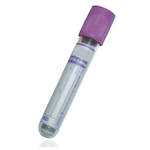Suitable Specimen Types
- Serum
- EDTA Plasma
- Li Hep Plasma
Specimen Transport
First class postSample Processing in Laboratory
Place sample in toxicology rack.Sample Preparation
None requiredTurnaround Time
3 days.Sample Stability
Keep refrigerated. 4 degrees.Verapamil
General Information
Verapamil is a synthetic papaverine derivative, first introduced in 1962 as an anti-anginal agent. It has since been found to have anti-arrhythmic and anti-hypertensive properties, attributable to its ability to inhibit transmembrane calcium flux in excitable tissues. Daily adult oral maintenance doses range from 240 – 480 mg, while single i.v doses of 5 – 10 mg are used for hypertensive crises.
Adverse effects associated with verapamil administration include nausea, weakness, dizziness, bradycardia, hypotension and atrioventricular block. Intravenous calcium gluconate may be able to reverse cardiac toxicity observed.
Patient Preparation
For TDM, sample should be taken prior to dose. If toxicity is suspected, take sample at earliest opportunity
Notes
Verapamil measured by HPLC-DAD.
Reference Range
Therapeutic use of verapamil is associated with blood concentrations of up to 0.4 mg/L. Toxicity is associated with verapamil levels > 1 mg/L. (Schulz et al. Critical Care 2012, 16:R136).
Specifications
- EQA Scheme?: Yes
- EQA Status: LGC QUARTZ, LGC CLIN TOX
